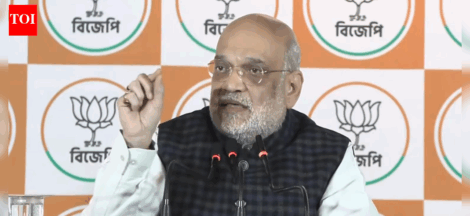By
Robert Griffiths
British
Labour Party leader Jeremy Corbyn told some uncomfortable truths to Europe’s
social democratic parties in Lisbon last week. He urged the congress of the
Party of European Socialists to “work together to help build a real social
Europe, a people’s Europe, a Europe that will strengthen solidarity across
borders, resist the race to the bottom in rights and protections, and work
together to extend them for all workers, consumers, and our environment.”
So
far, so good. Even the “free market” fanatics of the European Commission might
happily pay lip service to that. But the Labour leader continued: “We have to
recognize that European Union support for austerity and failed neoliberal
economics have caused serious hardship for working people across Europe. In my
own country, there’s been effectively a wage freeze for 10 years. It’s damaged
the credibility of the European social model and social democratic parties and
played a significant role in the vote for Brexit in Britain.”
Some
of the delegates from the social democratic and “socialist” parties of Germany,
France, Italy, Greece, Cyprus, Ireland, Denmark, Sweden, and the Netherlands
should have squirmed at that point. Over recent decades, to a greater or lesser
degree, they have all embraced neoliberal policies of public spending cuts, marketization,
privatization, labor flexibility, higher taxes for the working class, and lower
taxes for the rich and big business.
They
have doggedly upheld the European Union and its treaties which enshrine the
EU’s commitment to a capitalist market economy, the free movement of capital
and super-exploited labor, monetarism, militarization, and alignment with NATO.
They have all utterly failed to combat the austerity policies inflicted on
their own people by their own capitalist class and in some cases by the EU
Commission-EU Central Bank-IMF “troika.” And they have all been severely
punished by millions of working-class electors who have either turned in fear
or anger to what Corbyn called the “fake populists of the far right,” or moved
to the left, or stopped voting altogether.
Last
year, the German SPD saw its share of the poll in parliamentary elections fall
to an all-time low of 21 percent. Since breaking a solemn manifesto pledge not
to continue in coalition with Angela Merkel’s Christian Democrats, the SPD vote
has been further cut in state elections this year by half to 10 percent in
Bavaria and by one-third to 21 percent in Hesse. The biggest winners in recent
German elections are the far right, the nationalist Alternative for Germany,
and the unprincipled Greens.
In
France, electoral support for the misnamed Socialist Party has been downsized
by its defecting spawn to the right and the left, namely, President Macron and
Jean-Luc Mélenchon. Four-fifths of the party’s voters abandoned it in last
year’s National Assembly elections and again in the first round of the
presidentials this April.
The
Democratic Party in Italy has been loyally pro-EU and pro-austerity, losing
almost half of its popular vote since the 2008 crash as a result. The country
is now governed by a Eurosceptic coalition of the far-right Northern League and
Forza Italia parties and the eclectic Five Star Movement. Backed by the
financial markets, the EU Commission and the European Central Bank are
demanding that the coalition drop its plans for a deficit budget that will
benefit the unemployed and the elderly.
In
Greece, Netherlands, Cyprus, and the Czech Republic, the social democratic
parties’ percentage share of the poll has been slashed to single digits.
Austria, Sweden, Denmark, and, to a lesser extent, Spain are among the few EU
member states where the traditional social democratic parties retain
substantial mass support.
In
Portugal, the Socialists are in government thanks to support from the anti-EU
Communist Party and the increasingly Eurosceptic Left Bloc. Indeed, Corbyn made
a point in his Lisbon speech of congratulating all the parties of the
Portuguese left on their unity.
Corbyn
clearly told the Congress “European socialists have to fight for a different
kind of Europe. Our prize is a new, progressive economic consensus that breaks
with the failed market dogmas of the past and secures shared prosperity built
on a powerful public realm. We must build a new Europe—both inside and outside
the institutions of the European Union—that really does work for the many, not
the few.”
He
reminded delegates that Labour’s stance in the 2016 referendum campaign had
been to remain in the EU and help to reform it, to “shift the EU towards a more
genuinely social Europe, to help loosen the corporate grip on the EU’s agenda,
and reform some of the more restrictive market-driven regulations that exist in
Europe.”
Although
Corbyn repeated his view that Labour must now respect the majority decision to
leave the EU, that “Remain and Reform” perspective is being revived in some
labor movement circles.It raises profound questions of practicality and
strategy, as well as democracy.
Firstly,
what agreement could be reached about the reforms to be pursued? Should the two
basic EU treaties be rewritten to end the primacy of the so-called “competitive
free market,” or to limit the free movement of capital and labor? What about
the corporate right of establishment, which the EU Court of Justice has used to
negate the rights of workers, trade unions, and elected governments? Should the
EU ban, in effect, on “people’s quantitative easing” be abolished?
How
can the extraordinary powers of the EU Commission be devolved to member states,
or democratized without handing them to a European Parliament which has no real
organic link with its 396-million-strong electorate, with one MEP per half a
million electors?
What
about the unaccountable powers of the European Central Bank and the absurdity
of a one-size-fits-all euro? Should the monetarist restrictions on member state
borrowing and debt be relaxed or abolished? What should be done about VAT?
Assuming
agreement on a reform program, who will fight for it against the entrenched
opposition of the mainstream right-wing parties, employers’ organizations, and
senior state apparatchiks across most of the EU?
The
enfeebled, vacillating, and mostly pro-big business social-democratic parties
of Europe? The Green parties, most of which dump their anti-market,
anti-monopoly, anti-militarist policies at the first whiff of government
office?
The
anti-EU or Eurosceptic left in the Communist parties and formations such as the
Left Bloc (Portugal), Podemos (Spain), Die Linke (Germany), the Swedish Left
Party, the Danish Red-Green Alliance, and Mélenchon’s movement? These either
regard the EU—with good reason—as unreformable or they are not strong enough to
win general elections.
Reforming
the EU on the scale required to turn it away from today’s “Big Business Europe”
towards tomorrow’s “People’s Europe” would necessitate the election and
re-election of left, reforming governments in most of the major member states
and many of the minor ones within the same timeframe. That is a far more remote
prospect than electing a left-led Labour government in Britain.
Winning
such a government requires a general election. Securing the freedom for such a
government to implement policies of public investment, public ownership,
economic and environmental planning, progressive taxation, and full workers’
and trade union rights requires a People’s Brexit from the EU and its single
market and customs union rules.
(IPA Service)
Courtesy:
Morning Star
The post Reforming The European Union Is An Impossible Dream appeared first on Newspack by India Press Agency.



